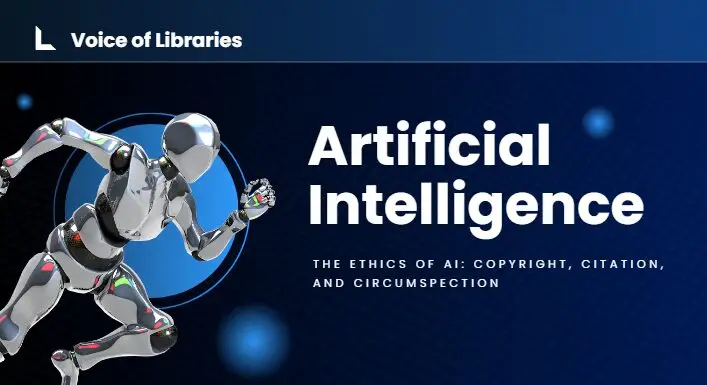
The Ethics of AI: Copyright, Citation, and Circumspection
The Ethics of AI
Introduction:
The rapid advancement of artificial intelligence (AI) has brought about profound questions related to ethics, particularly concerning copyright, citation, and the broader concept of circumspection in its usage. Let’s explore these three key elements of AI ethics in more detail.
1. Copyright: Respect for Intellectual Property
One of the most pressing issues in the AI landscape is ensuring respect for copyright. AI models often rely on vast amounts of data, including text, images, and audio, which may be subject to copyright. The ethical question revolves around how AI accesses and uses this data without infringing on the rights of the original creators.
- Training Data: Large language models like GPT are trained on massive datasets, some of which may include copyrighted material. Ensuring that AI systems avoid using data in a way that violates intellectual property rights is paramount. Ethical AI development requires transparency about the sources of training data and whether this data was used legally.
- Fair Use and Licensing: Developers of AI systems need to navigate the fine line between fair use and copyright infringement. Fair use may apply in cases of research, education, or parody, but companies using copyrighted material for commercial purposes must acquire proper licenses. Ethical AI models should integrate mechanisms to track and credit copyrighted works properly.
2. Citation: Acknowledging Sources
Another major ethical concern is how AI-generated content cites or references original sources. Because AI can synthesize information from many places, ensuring proper attribution is essential.
- Transparency in Source Material: AI models must ensure they are clear about where their outputs are coming from, especially when summarizing information, quoting, or repurposing content. This is crucial in academic, journalistic, or research contexts, where credibility and integrity depend on verifiable sources.
- Plagiarism Concerns: While AI can generate original-sounding text, ethical AI usage demands that proper credit be given to the creators of original ideas. Failure to do so could result in plagiarism, even when unintentional.
- Attribution Models: In some instances, AI models may integrate automatic attribution tools, ensuring that the original creators are credited when content is used or modified. This would foster ethical practices in content generation.
3. Circumspection: Responsible and Careful Use
Circumspection refers to the responsibility of AI developers and users to be cautious and mindful of the potential impacts of AI on society.
- Bias and Discrimination: AI models can perpetuate biases present in the data they are trained on. Developers must carefully examine their models to mitigate any unintended harm caused by biased outputs, whether based on race, gender, or other characteristics.
- Misinformation: AI systems can generate content at an unprecedented scale. Ensuring that AI does not contribute to the spread of misinformation is crucial. Developers need to install safeguards that flag or restrict AI-generated content that is factually incorrect or misleading.
- Data Privacy: AI systems, particularly those that use personal data, must adhere to stringent privacy standards. Developers must be transparent about data collection methods and ensure compliance with privacy regulations like GDPR (General Data Protection Regulation).
- Autonomy and Accountability: As AI becomes more autonomous, ethical questions regarding accountability arise. Who is responsible if an AI system makes a decision that results in harm? Developers, policymakers, and legal frameworks need to address these concerns to ensure accountability for AI’s actions.
Conclusion
The ethics of AI, particularly concerning copyright, citation, and circumspection, is an evolving discussion that demands thoughtful solutions. Developers, users, and regulators must work together to build systems that respect intellectual property, credit original creators, and are responsible in their application. By adhering to ethical principles, AI can be used as a tool for good, benefiting society while minimizing risks.

